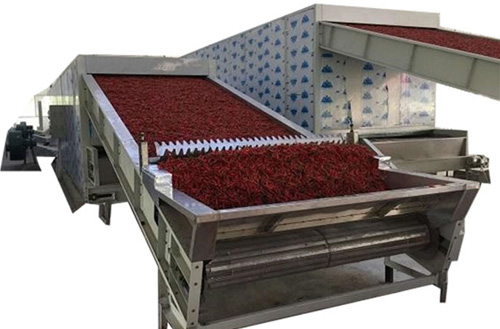






In India, the pineapple industry is a significant contributor to the economy. With an abundant supply of this succulent fruit, processing it into various products for domestic consumption and export has become essential. One critical aspect of pineapple processing is drying, which helps extend shelf life and create value-added products. Drying equipment plays a pivotal role in this process by ensuring efficient dehydration while maintaining quality and nutritional content.
India's tropical climate presents unique challenges in drying operations. The high temperatures and humidity can affect the drying time and product quality. Therefore, specialized drying equipment is necessary to overcome these challenges. Various types of drying technologies are utilized in the Indian context, including solar dryers, convection dryers, freeze dryers, and vacuum dryers.
Solar dryers harness the sun's energy to dehydrate fruits and vegetables. They require minimal maintenance and operate at low costs. These dryers are especially suitable for regions with ample sunlight, making them popular in many parts of India. Convection dryers use heated air to remove moisture from the product, and they are often preferred due to their faster drying rates. However, careful temperature control is essential to prevent over-drying and ensure the product retains its color and nutritional value.

Freeze dryers work by freezing the product and then subjecting it to a vacuum environment where the ice crystals sublimate directly to vapor. This method is particularly effective in retaining the original structure and nutrients of the fruit. Vacuum dryers operate under a reduced pressure environment, reducing the boiling point of water within the product, thereby facilitating quicker evaporation. These dryers provide excellent control over drying conditions and are suitable for high-value products that demand precise handling.
The selection of drying equipment depends on factors such as the desired product quality, available resources, and the economics of the operation. In India, a combination of different drying methods is often employed to meet varying market demands and product specifications.
The utilization of advanced drying techniques ensures that the pineapple processed in India maintains its quality and nutritional properties, making it highly competitive in both domestic and international markets. Continuous innovation and investment in drying technology will undoubtedly play a crucial role in the growth and success of the Indian pineapple industry.